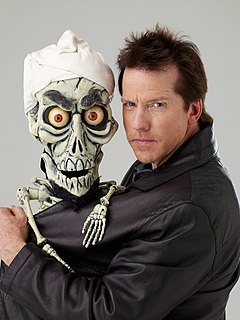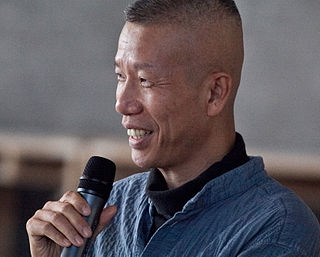A Quote by Penn Jillette
Channeling is just bad ventriloquism. You use another voice, but people can see your lips moving.
Related Quotes
One of the skills you have to master in theater is the ability to make the audience believe that things that aren't there are there - just like when you're acting against CGI. Also, in a theater, the people in the back row can't see the whites of your eyes. Or your lips moving as you deliver dialogue.
An intelligent sociopath can learn the rules about what's good and what's bad, what people see as good and bad. But they don't get that intervening sense of guilt, that pang of conscience, on account of it. So they tend to know what's wrong or right, they just don't care. That's another thing that they can use against us: that we do care. We're predictable in that.
I want to see you. Know your voice. Recognize you when you first come 'round the corner. Sense your scent when I come into a room you've just left. Know the lift of your heel, the glide of your foot. Become familiar with the way you purse your lips then let them part, just the slightest bit, when I lean in to your space and kiss you. I want to know the joy of how you whisper "more
Doing voice work is more like recording music that people are going to listen to. You're creating an oral experience using whatever bells and whistles you have in your voice, and you can shut your eyes and use your imagination and nobody's going to see if the faces you make don't match the voices you make. That's a lot of fun.


































